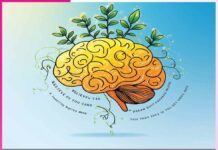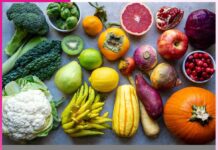Types of Diet to Follow
An individual’s eating pattern comprises the food and drink that one consumes habitually. People’s eating preferences are governed by a variety of factors such as climate, region, beliefs, choices etc.
There are hundreds of diet patterns all over the world. But not all of them are healthy. Some people follow unhealthy diets through habit, rather than through a conscious choice to eat unhealthily. Due to health reasons or consciously, some consume diets prescribed by medically certified practitioners.
Also Read:
- Correct Diet & Exercise will Increase Height, Thyroid can also Stop Height
- What Should Be The Diet In Old Age
- Pregnancy and Nutrition
- PROTEIN- WHAT & WHY A MUST
Table of Contents
Some of these numerous diets –
with their pros and cons – are mentioned as follows:
 Paleo Diet:
Paleo Diet:
Eat like a caveman, focusing on nuts and seeds, fruits and vegetables. Avoid dairy, sugar, legumes and grains.
Positives: Effective for weight loss, appetite control, lowering blood pressure.
Drawbacks and concerns: Eliminating dairy, grains and legumes can reduce the amount of calcium, fibre and other nutrients that are considered vital to a healthy diet.
Carb Cycling:
Eat more carbs on days when you are physically active, fewer on rest days.
Positives: It includes complex carbs – whole grains, fruits and vegetables – that most dieticians consider vital.
Drawbacks and concerns: Consider that carb cycling usually gets associated with serious athletes. This approach to diet works best for people who engage in high intensity workouts regularly.
Nourish and Glow:
A 10-day high protein, low carb, low dairy diet.
Positives: Eliminates processed foods and added sugars.
Drawbacks and concerns: Restrictive. May be costly.
Mindful Eating:
Pay close attention to every aspect of eating and your body’s response to food. Eat slowly and deliberately.
Positives: Causes you to think before you eat and to recognise hunger and fullness. Eating slowly allows your brain to catch up with your body’s signals of fullness. Helps to identify emotional eating triggers.
Drawbacks and concerns: Long and difficult learning process with few guidelines.
Worth noting: Mindfulness shares the same basic goal of understanding your body when it comes to hunger and fullness.
Clean Eating:
Avoid all foods with artificial ingredients. Stick to whole, natural foods only.
Positives: Eliminates processed foods that can cause weight gain and health issues. Lowers consumption of sugar and salt.
Drawbacks and concerns: This diet can be costly and time-consuming. Restrictive.
Mayo Clinic Diet:
Low sugar and nutrient-dense foods.
Positives: Emphasis on adding fruits and vegetables to meals. No calorie counting. Effective for weight loss.
Drawbacks and concerns: After the initial phase, which restricts certain foods for two weeks; followers are expected to stick to eating healthy foods but have few restrictions. Some people may overdo it when reintroducing off-diet foods.
South Beach Diet:
Lean meats, low-glycemic carbs, unsaturated fats.
Positives: Effective for long-term weight loss. No counting calories or macros. Offers a transition plan for healthy eating after reaching goal weight. A pre-packaged meal delivery plan is available. It is considered heart-healthy.
Drawbacks and concerns: Some may find the diet too restrictive.
Worth noting: First published in 2005, The South Beach Diet by Dr Arthur Agatson has an update, The New Keto-Friendly South Beach Diet.
Best Life Diet:
A structured plan to phase in healthy food choices as you phase out less healthy foods. Created by Oprah Winfrey’s one-time trainer Bob Greene, as outlined in his book The Best Life Diet.
Positives: The focus on making gradual changes to your diet increases the chance that you will stick with a healthier way of eating long term. Includes regular exercise as part of the plan.
Drawbacks: Eating away from home may be difficult to navigate.
Vegetarian:
No meat, no fish, no poultry.
Positives: Studies show that the diet can stabilize blood sugar, improve cardiovascular health and lead to weight loss.
Drawbacks and concerns: By eliminating common sources of protein, iron and other important nutrients, vegetarians need to be vigilant about getting those nutrients from other sources. Otherwise, they are at a higher risk for anemia and other health issues.
Worth noting: Even for non-vegetarians, adjusting your diet to include meatless meals has been recommended for improved health.
French Diet:
Eat like a French person – savour indulgent foods but control portions. The concept was popularised by the book French Women Don’t Get Fat by Mireille Guiliano.
Positives: You get to eat what you like, with the caveat that you eat it slowly, mindfully to fully enjoy it. Taking that time lets your brain get the signal that you are full before you overstuff yourself. Emphasizes fresh foods over processed foods.
Drawbacks and concerns: It can be hard to find the time to have a leisurely meal three times a day.
Keto Diet:
High fat, moderate protein, very low carb.
Positives: It eliminates processed, empty-calorie staples like white breads, white rice and sugary drinks. Many followers experience fast weight loss, without having to give up favourite foods like bacon and butter.
Drawbacks and concerns: It eliminates many nutritious fruits and vegetables with a high carb count. Eating too much fat or too much protein can have an adverse effect on overall health.
Vegan Diet:
Eat only plant-based foods, including omitting anything that has any connection to animals, including eggs, milk or gelatin.
Positives: Studies show the diet can improve cholesterol, blood glucose levels and lower blood pressure. Many followers go vegan because they see it as more humane or environmentally conscious than other diets.
Drawbacks and concerns: Followers may not get adequate levels of iron, calcium, vitamin B12 and omega-3 fatty acids that are considered vital to a healthy diet.
Worth noting: Many vegans also avoid clothes, furniture and other goods that use animal by-products.
Fruitarian:
One must eat a lot of fruit. Infact, one must make it 75% of what you eat.
Positives: Fruit is good for you, with lots of vitamins. Everyone should be eating more fruit.
Drawbacks and concerns: Fruit also contains sugar, and therefore, eating so much of it may lead to weight gain, tooth decay and spiked blood sugar. Fruitarianism is an extreme diet, overly restrictive and therefore hard to stick with. It can leave you deficient in important nutrients.





























 Paleo Diet:
Paleo Diet:














